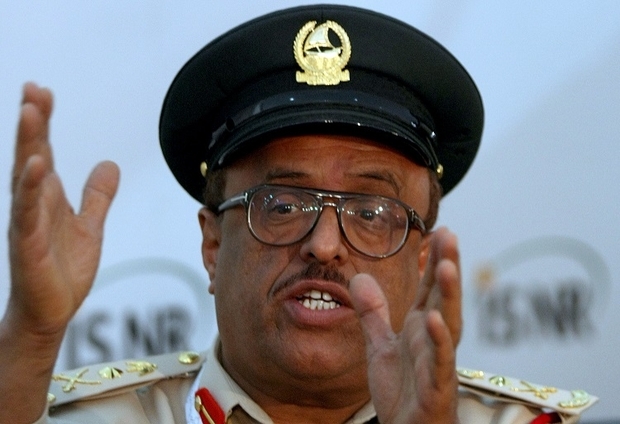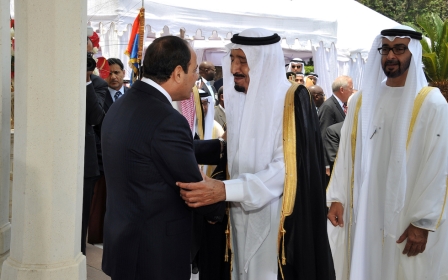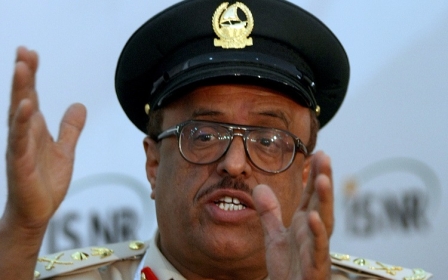Qatar should cancel World Cup to end Gulf crisis: UAE security boss

A highly influential senior UAE security official has called on Doha to give up the World Cup to end the ongoing diplomatic crisis between Qatar and its former allies in the Gulf.
The call is the first time the World Cup has been mentioned in relation to the diplomatic dispute that has led to a series of Gulf countries imposing a blockade on Qatar.
Dhahi Khalfan, Dubai's head of security, made the call for Qatar to abdicate its right to host the World Cup on Sunday on his personal Twitter account which has over two million followers.
"If the World Cup goes out of Qatar, the crisis in Qatar will end because the crisis was made to break it," Khalfan wrote on Sunday.
He added: "The cost to return is more than what al-Hamdeen have planned for," referring to Qatar's former ruling emir Sheikh Hamad bin Khalifa al-Thani and his son, the current emir, Sheikh Tamim bin Hamad.
Khalfan later accused Doha on Monday of "fabricating" the current crisis in a bid to avoid the "burden of costly sports construction".
"I said that Qatar is making up this crisis and claims that a siege was imposed on it, in order to get rid of the expensive costs of building sports facilities and hand the World Cup [to another country]. That's why it made up the current crisis," he said on Twitter.
Khalfan, who was also Dubai's police chief and has powerful connections in the Emirati royal court, is notorious for his controversial comments on Twitter.
In 2014, he said Qatar was the UAE's "eighth emirate”.
Qatar has repeatedly denied that the ongoing diplomatic crisis will affect ongoing construction work for the World Cup.
The tournament's head in Qatar told the Associated Press on Friday that the blockade posed "no risk" to the competition.
The comments come after a row last week over the leaking of a report from management consultancy firm Cornerstone Global, which the BBC obtained, that raised doubts about whether Qatar would host the World Cup because of "an increasing political risk".
But the impartiality of the report was called into question because of comments posted on social media by Ghanem Nuseibeh, the founder and head of Cornerstone Global, in which he suggested that Qatar posed a "bigger risk" than al-Qaeda or the Islamic State group, and expressed support for the Saudi-led blockade.
Nuseibeh told Middle East Eye that Cornerstone's report was "an objective report by professionals whose personal opinions do not impair their professionalism" and said that concerns expressed by Qatari officials about the report were "in line with the report's main qualitiative overall findings.
"Risks have clearly gone up over the past few months and the report highlighted this objectively," he said.
The report was dismissed by Qatar's Supreme Committee for Delivery and Legacy, which in a statement, told the BBC: "In the context of the current political situation we question the motives of an organisation - which makes no secret of its affiliation to the countries blockading Qatar - of publishing a report based entirely on media reports and anonymous sources."
The ongoing diplomatic spat began in early June after Saudi Arabia, Egypt, Bahrain, and the United Arab Emirates accused Qatar of sponsoring terrorism. This led to a blockade being imposed on Doha.
Kuwait has continued to mediate between the two parties but has made little progress since the crisis began.
New MEE newsletter: Jerusalem Dispatch
Sign up to get the latest insights and analysis on Israel-Palestine, alongside Turkey Unpacked and other MEE newsletters
Middle East Eye delivers independent and unrivalled coverage and analysis of the Middle East, North Africa and beyond. To learn more about republishing this content and the associated fees, please fill out this form. More about MEE can be found here.




